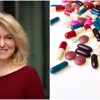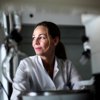Fritextsökning
Artiklar per år
Innehållstyper
-

Who pays for Rebecca Doe – and all of us?
Anna Törner on how easily we get used to the idea that healthcare is free - when it really is about how and who pays for it
-

The art of successful licensing – “A lot has to align”
Sharp research, strong data and a high level of innovation are all very good, but more than that is required to achieve the goal of many biotechnology companies: to succeed with a licensing deal.
-

Ukraine war fuels rise of totally resistent bacteria
War-torn Ukraine is not just suffering from hostile attacks from a foreign aggressor, but also from the threat of a totally resistant and contagious bacteria.
-

Flerie säljer av portföljbolag
Investeringsbolaget Flerie säljer alla sina aktier i diagnostikbolaget A3P Biomedical.
-

Priskrig på fetmaläkemedel i USA
Novo Nordisk gör en kraftig prissänkning på viktminskningsläkemedlet Wegovy i USA för patienter som själva betalar för behandlingen.
-

Security flaw in Swedish breast cancer screening software – woman passed away
A lack of safeguard in Sectra's software led to a woman with breast cancer receiving an incorrect diagnosis. She later passed away. The software is used in 20 out of 21 regions in Sweden. It is also used in neighbouring Nordic countries. “Extremely serious,” says the Sectra CEO to Medtech Magazine.
-

Health politician Lina Nordquist: ”I find it hard to be idle”
She is the pharmacist and researcher who grew tired of the breakthroughs that never materialised and knowledge that never seemed to reach patients, so she decided to make a change from within. Life Science Sweden meets Lina Nordquist, Member of Parliament for the Liberals and their spokesperson on healthcare policy, to have a conversation about reality, politics, and the need for writing.
-

Läkemedel mot Fabrys sjukdom bedöms för dyra – TLV trycker på stoppknappen
Samtliga läkemedel som används för behandling av enzymbristtillståndet Fabrys sjukdom utesluts ur högkostnadsskyddet.
-

Trender inom life science 2025 – Del 4 neuro
Nya alzheimerläkemedel börjar användas, ett nytt MS-läkemedel gör entré och verktyg för att ta aktiva substanser genom blod-hjärnbarriären utvecklas. Dessutom väntas ett viktigt neurologibesked från FDA redan i dag, torsdag. Del fyra i trendspaningar 2025: neuro.
-

We desire talent to come here, but are we genuinely welcoming them?
Sweden faces significant challenges in creating a truly inclusive environment that makes international professionals feel welcome, valued, and able to build meaningful careers, writes Sarah Lidé in a column.
-

The business coach: “We need to learn from our mistakes”
The past year has been challenging for many biotech companies, with several comapanies facing financial stress and bankruptcy. To understand how entrepreneurs can navigate these tough times, Life Science Sweden spoke to Pia Keyser, a business coach at Umeå Biotech Incubator, who has worked with many companies in the industry.
-

The future of healthcare in focus: ”Together, things happen”
In march, it’s once again time for Fokus Patient, an event for the industry where the patients’ perspective takes center stage. It’s a great way to spread knowledge in Sweden and around the world, according to the initiator Penilla Gunther
-

Bioarctic fälls för vd-uttalanden till journalist – efter anmälan från konkurrent
I ett vägledande utslag fälls alzheimerbolaget Bioarctic för uttalanden som bolagets vd gjorde till en ekonomijournalist i somras.
-

New cell therapy raises hope for curing type 1 diabetes – "Never succeeded before"
For the first time, a patient with type 1 diabetes has undergone an islet transplantation using genetically modified insulin-producing cells that do not require immunosuppressive drugs. "A major immunological breakthrough," says Professor Per-Ola Carlsson, who leads the clinical study, to Life Science Sweden.
-

“Research is always a lot of failures and a few successes”
Gene therapies open up fantastic possibilities, but they are also extremely expensive to produce. Genenova aims to change that and make the treatments accessible to more people. “Our overall ambition is to reduce costs a hundredfold”, says professor Johan Rockberg at KTH Royal Institute of Technology in Stockholm.
-

In search of Marcel Proust's lost health
A great writer, but also a weak person and a hypochondriac. That has been the usual image of Marcel Proust. But the pediatrician and literary scholar Carl Lindgren paints a partly different picture in a new book about the French master's life, health and attitude towards physicians.
-

Investigations against AstraZeneca: ”Chinese interests may be behind them”
Why are there several investigations against AstraZeneca employees in China right now? Life Science Sweden continues to seek answers.
-

Drug development booms in Medicon Valley
When it comes to developing new medicines, the Öresund region is one of the top performers in the EU. Companies working on commission for pharmaceutical companies are highlighted as a success factor. “Everyone has heard of Novo Nordisk, but these companies are unknown to people outside the industry despite being the golden vein of the life science sector,” says Anette Steenberg, CEO of the cluster organisation MVA.
-

”The importance of stratification in a statistician’s August kitchen”
Ingrid Lönnstedt writes about an experiment of her own at home and about what lessons can be learned from it, in a science column.
-

Her company is developing a new tablet form obesity drug
Obesity and diabetes are the primary targets of a new tablet treatment under development by Malmö-based Pila Pharma. The company’s ambition is to take on the billion-selling GLP1 analogues. ‘‘Basically, I expect all the beneficial effects that they have, but not the same side effect profile,’’ company founder Dorte X Gram said in an interview with Life Science Sweden.
-

GSK pays 2.2 billion dollars to settle Zantac lawsuits
British drugmaker Glaxo Smith Kline, GSK, has struck a 2.2 billion dollar settlement, thereby resolving a vast majority of the liability cases pending against the company in the U.S. that alleged its discontinued drug Zantac caused cancer.
-

Anna Törner: ”Mom, do you think you’ll ever get married again?”
”I realize I’m slowly descending into that familiar statistical rabbit hole, where life’s biggest uncertainties are reduced to point estimates and confidence intervals”, Anna Törner writes in a column.
-

Anna Törner: ”Mamma, tror du att du kommer att gifta om dig?”
”Jag inser att min hjärna är på väg ned i det statistiska kaninhålet, där frågor besvaras med punktskattningar och konfidensintervall.” Det skriver Anna Törner i en krönika.
-

“We should avoid surgery if we can”
Since February this year, she has been Scientific Director Life Science at the Karolinska Institutet. Life Science Sweden met Anna Martling for a talk about role models, surgery and Sweden’s strengths and weaknesses in medical research.